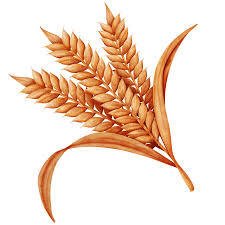Shop
Stone ground Wheat flour ₹ 450,0
Net wt:- 10kg
Stone ground wheat flour is a type of flour made by grinding wheat berries between two large stones. This traditional method preserves more of the wheat’s natural nutrients and fiber because the entire wheat kernel, including the bran, germ, and endosperm, is ground together. Unlike modern roller milling, which separates these components, stone grinding retains more of the grain’s natural oils and flavor.
Description
Benefits of stone ground wheat flour include:
 Nutritional value: It contains more fiber, vitamins (especially B vitamins), and minerals like iron and magnesium due to the inclusion of the bran and germ.
Nutritional value: It contains more fiber, vitamins (especially B vitamins), and minerals like iron and magnesium due to the inclusion of the bran and germ. Rich flavor: The milling process preserves the natural oils, giving the flour a deeper, nuttier flavor.
Rich flavor: The milling process preserves the natural oils, giving the flour a deeper, nuttier flavor. Texture: Stone ground flour tends to be coarser than finely milled flours, providing a rustic texture.
Texture: Stone ground flour tends to be coarser than finely milled flours, providing a rustic texture.
Ingredients:
- Whole Wheat Grains: The key ingredient in stone ground wheat flour is whole wheat, which includes the outer bran, the inner germ, and the starchy endosperm. When milled using stone mills, these components are kept intact.
- Natural Milling Process: Stone grinding preserves the wheat’s natural properties, including its nutritional value, flavor, and texture, by grinding the wheat slowly between two large stones.
Uses of Stone Ground Wheat Flour:
- Baking: Stone ground wheat flour is perfect for making bread, rolls, and other baked goods like cookies, cakes, and muffins. Its rich, earthy flavor adds depth to recipes.
- Flatbreads: It is commonly used to make traditional flatbreads such as roti, chapati, and naan. The flour’s slightly coarser texture helps in creating rustic, wholesome flatbreads.
- Pasta: Stone ground wheat flour can be used to make whole grain pasta, offering a healthier and more flavorful alternative to refined flour-based pasta.
- Cakes and Sweets: While it’s not as fine as all-purpose flour, it can still be used in baking cakes, brownies, and other sweet treats. You may need to adjust recipes slightly to account for the flour’s coarser texture.
- Thickening Agent: It can be used as a thickener for soups, stews, and gravies, providing a more wholesome, nutritious option compared to refined flour.







